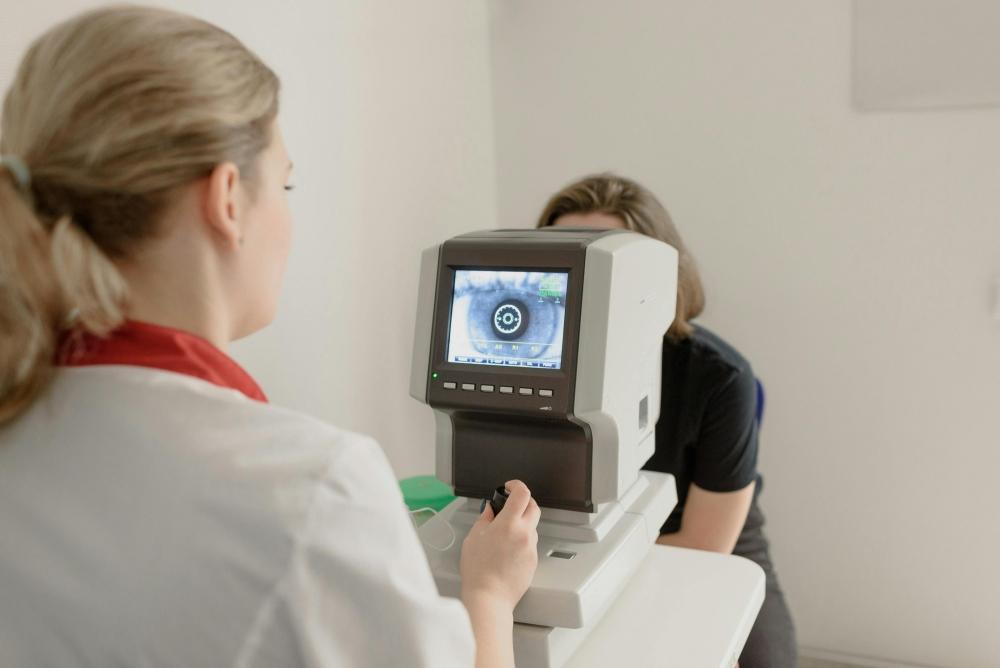Cataract surgery has helped improve the lives of millions, offering better vision and quality of life. Yet, like any surgical procedure, it comes with potential post-operative challenges. Understanding these complications and knowing how to manage them is helpful for recovery.
In this detailed guide, we explore the common complications that can arise post-cataract surgery, providing insights into their management and the recommended steps patients may take to address them.
Common Post-Cataract Surgery Complications
Cataract operations, while generally safe, can lead to several complications that, if not managed properly, may affect the outcome. Below, we outline some of the most frequently encountered issues after a cataract surgery in Singapore and discuss their management.
1. Dry Eye Syndrome
Post-cataract surgery, many patients may experience Dry Eye Syndrome, a condition where the eyes do not produce enough tears or the quality of tears is poor, leading to potential discomfort and visual disturbances. Symptoms typically include itchiness, redness, and a gritty sensation in the eyes.
2. Double Vision
Double vision or diplopia is another complication that some patients might encounter after a cataract surgery. This usually resolves as the eye heals but may be managed with corrective eyewear or temporary prisms added to glasses.
3. High Eye Pressure
An increase in eye pressure post-cataract surgery can lead to discomfort and is a risk factor for glaucoma. Eye care professionals typically monitor this closely post-operation through regular eye tests.
4. Inflammation
Post-operative inflammation is common and can usually be managed with anti-inflammatory eye drops. Symptoms to watch for include redness, swelling, and a sensation of heat around the eye. Follow your doctor’s instructions carefully regarding dosage and duration of treatment to mitigate inflammation effectively.
5. Other Complications
Patients might also notice black spots, increased light sensitivity, or flickering visions post-surgery. These symptoms often improve with time but should be discussed during follow-up appointments. It is advisable to monitor any persistent issues and discuss them with your healthcare provider to ensure they are part of the normal healing process.
Managing Each Post-Cataract Surgery Complication
Effective management of post-cataract surgery complications is recommended to ensure optimal recovery and maintain the health of your eyes. Here’s how each complication can be managed, emphasising the importance of adhering to your eye surgeon’s guidance and the scheduled follow-up appointments.
Dry Eye Syndrome
To help manage Dry Eye Syndrome, regular use of prescribed lubricating eye drops by your eye care clinic in Singapore is recommended. Patients are also advised to consider lifestyle adjustments such as reducing screen time, using humidifiers to moisten dry indoor air, and wearing sunglasses outdoors to protect against wind and sun, which can exacerbate dry eyes.
Double Vision
If double vision persists beyond the immediate post-operative period, further assessment with your eye surgeon in Singapore may be required to determine its cause. Temporary solutions like special lens adjustments or eye exercises may be recommended; in some cases, additional medical or surgical treatment may be necessary.
High Eye Pressure
Regular monitoring of eye pressure is recommended after cataract surgery. If medications are prescribed, it is advisable to take them as directed. In some instances, lifestyle changes such as increased physical activity and dietary adjustments may also help manage eye pressure.
Inflammation
To effectively manage inflammation, it is advisable to adhere to the prescribed course of anti-inflammatory eye drops. Keeping the eye area clean and avoiding any potential irritants may also help reduce inflammation and promote healing.
Other Complications
For complications like black spots or flickering vision, maintaining a diary of occurrences can be helpful for your medical team to understand and treat these symptoms. In cases of light sensitivity, wearing photochromic lenses or sunglasses can offer relief and protect against harsh lighting.
Importance of Follow-up Appointments
Regular follow-up appointments are recommended to track the progress of your recovery and manage any arising complications. These visits allow your doctor to adjust treatments as needed and ensure that your recovery is on the right track.
When to Seek Professional Help
While most post-cataract surgery complications may be manageable with routine care, immediate medical attention should be sought if you experience any of the following symptoms after cataract surgery:
- Sudden decrease in vision or complete vision loss.
- Persistent or intense eye pain that does not improve with over-the-counter pain relievers.
- Signs of infection, such as increased redness, swelling, or discharge from the eye.
- Light flashes or new, significant floaters in your vision could indicate retinal detachment.
These symptoms could signify complications that require prompt intervention to help improve vision and ensure the health of your eye.
Maintaining open communication with your eye surgeon is also advisable. Do not hesitate to contact your clinic if you have concerns or symptoms that do not align with the normal recovery process described during your post-operative consultations. It is always better to address potential issues early rather than waiting until your next scheduled appointment.

Long-Term Care and Prevention
After a cataract surgery, maintaining the health of your eyes is advisable to ensure optimal results. Here are several tips to help you care for your eyes post-surgery and prevent future complications:
- Regular Check-Ups: Schedule regular eye tests in Singapore with your eye care clinic to monitor your eye health and catch any subtle changes early.
- Protective Eyewear: Use sunglasses with UV protection to shield your eyes from harmful sun exposure, which can accelerate eye ageing and lead to other complications.
- Nutrition: Incorporate foods rich in antioxidants, vitamins C and E, and omega-3 fatty acids into your diet. These nutrients may help support eye health and ward off conditions that affect vision.
- Hydration: Keeping hydrated is recommended for maintaining sufficient eye moisture, particularly if you are prone to dry eyes.
- Avoid Smoking: Smoking can adversely affect your eye health, increasing the risk of eye diseases, including cataracts and macular degeneration.
Maintaining a healthy lifestyle may benefit your well-being and improve your eyes’ health. Regular exercise and managing health conditions like diabetes or high blood pressure can also impact eye health.
Secure Your Vision for the Future with Professional Assistance
Managing post-cataract surgery complications is recommended to safeguard your vision. By understanding the common issues that may arise and knowing when to seek professional help, you can take proactive steps towards ensuring optimal recovery.
Equally important is the commitment to long-term eye care and preventive measures. Staying vigilant about your eye health and maintaining regular contact with your eye surgeon is advisable to enjoy clear, comfortable vision for years. For more information, check out our guide on all you need to know about recovering from cataract surgery.

